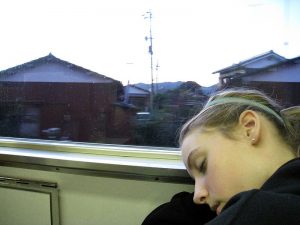Early Bedtime Helps Teenagers Maintain Healthy Weight And Keep Fit
 A study from the University of South Australia has determined that teenagers who go to bed early are much less likely to be obese. These same teenagers also stand a better chance of being physically fit.
A study from the University of South Australia has determined that teenagers who go to bed early are much less likely to be obese. These same teenagers also stand a better chance of being physically fit.
2 thousand Australian children and teenagers between the ages of 9 and 16 years were studied. The researchers looked at their bedtimes and the time they usually woke up in the morning. They were interested in the impact of these times on the overall health and weight of the teenagers, as well as their activities during free time.
The researchers discovered that young people who go to bed late and get up late are 1.5 times more likely to suffer from obesity, and 2.9 times more likely to follow a sedentary lifestyle. Teenagers who were night owls often chose sedentary activities during their free time, such as playing video games, watching television, or becoming involved in computer activities.
The study also highlights the fact that leisure activities in the evening tend to be more focused on inactive or deskbound pursuits. This corresponds with the time of day most often available for teenagers to relax. The researchers noted that evening television shows, social media, and other online activities provide a powerful incentive for young people to stay up. Unfortunately, by sleeping in the next morning, these same teenagers are missing out on important opportunities for sports and outdoor physical activities that usually take place early in the day.
The study indicated that those teenagers who go to bed late, usually spend about 48 minutes longer engaged in sedentary activities than their early rising peers. This works out to replacing half an hour of physical activity with inactive leisure activities per day.
Although the connection between lack of sleep and obesity is well known, this is the first study to examine the effect of the timing of sleep on the health of young people. The researchers suggest that teenagers should limit their night owl habits in order to improve their fitness and overall physical health and weight.
Source: October 2011 edition of Sleep
Photo: Michael Cornelius. Wikimedia Commons. No endorsement implied.
 Eating Disorder Self Test. Take the EAT-26 self test to see if you might have eating disorder symptoms that might require professional evaluation. All answers are confidential.
Eating Disorder Self Test. Take the EAT-26 self test to see if you might have eating disorder symptoms that might require professional evaluation. All answers are confidential.